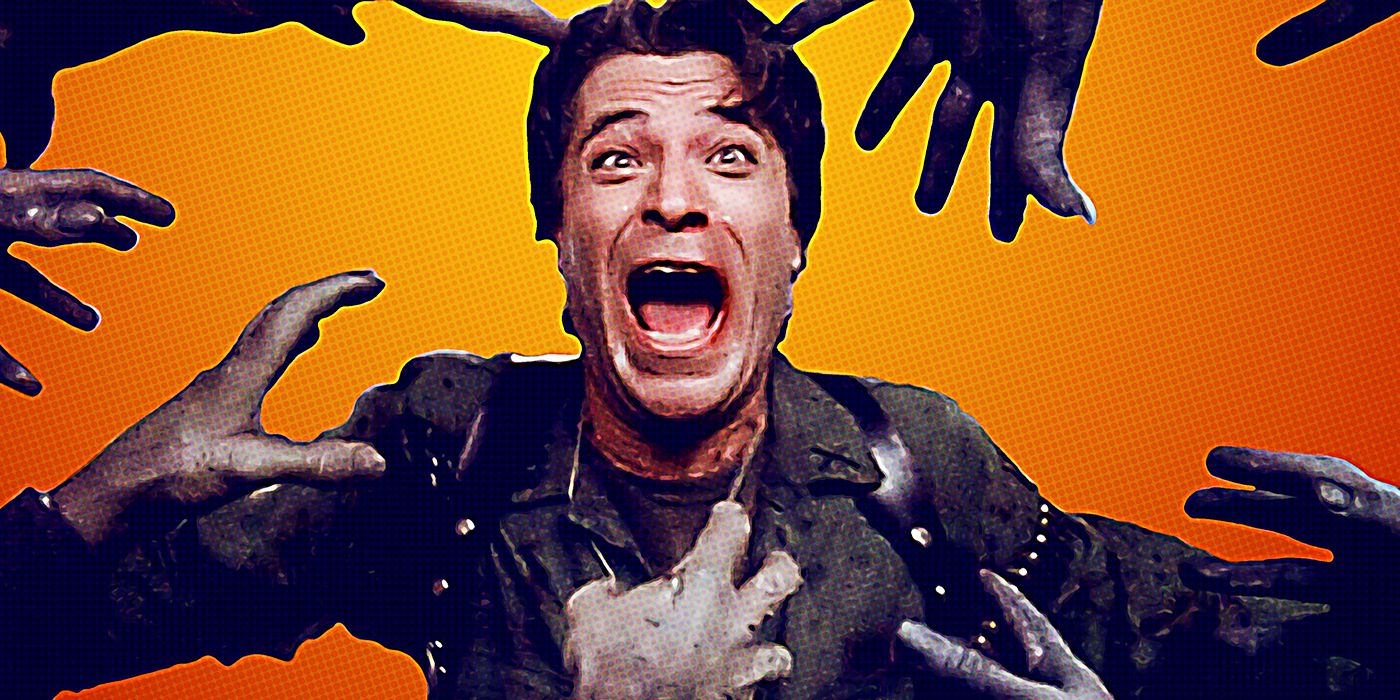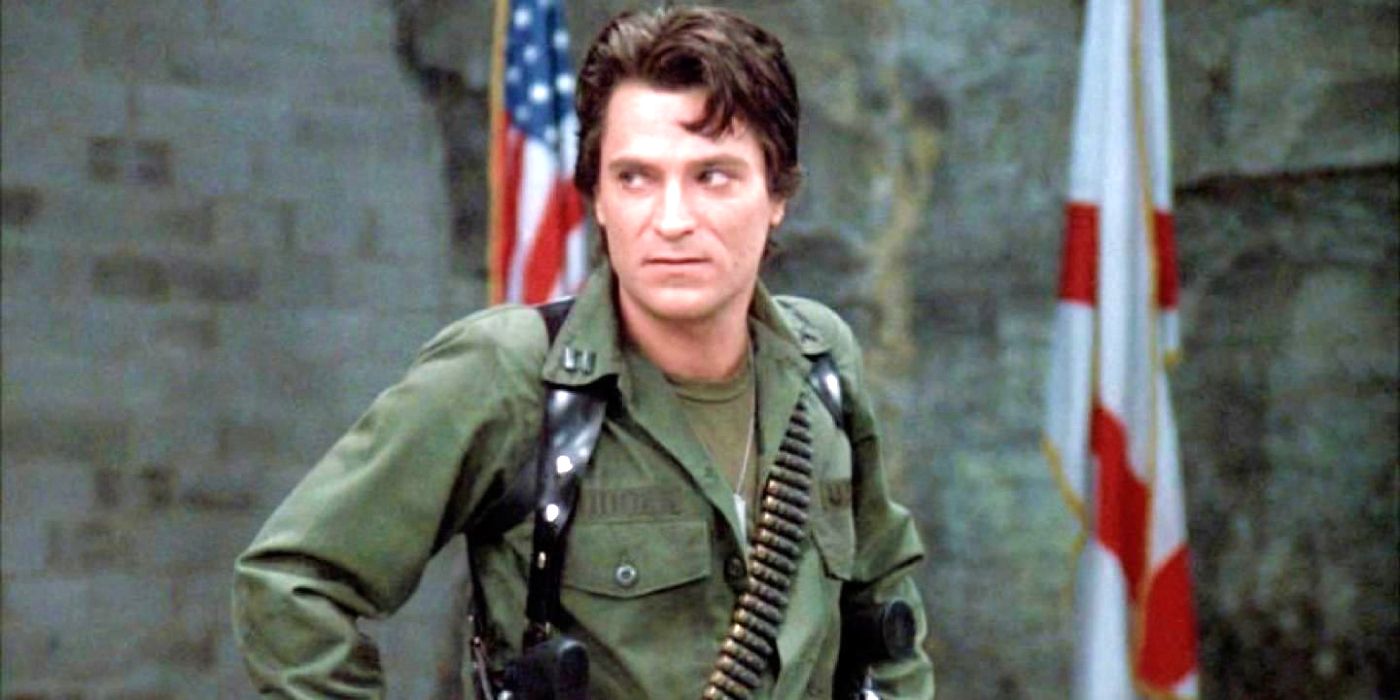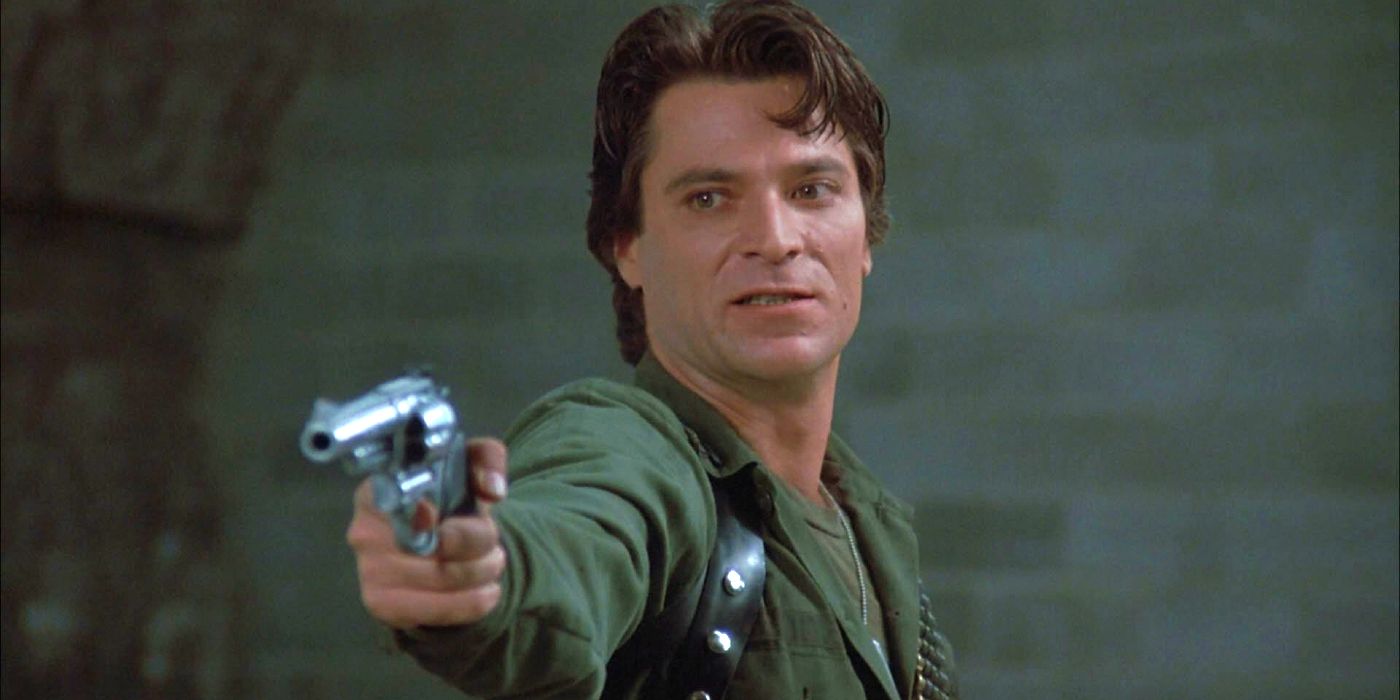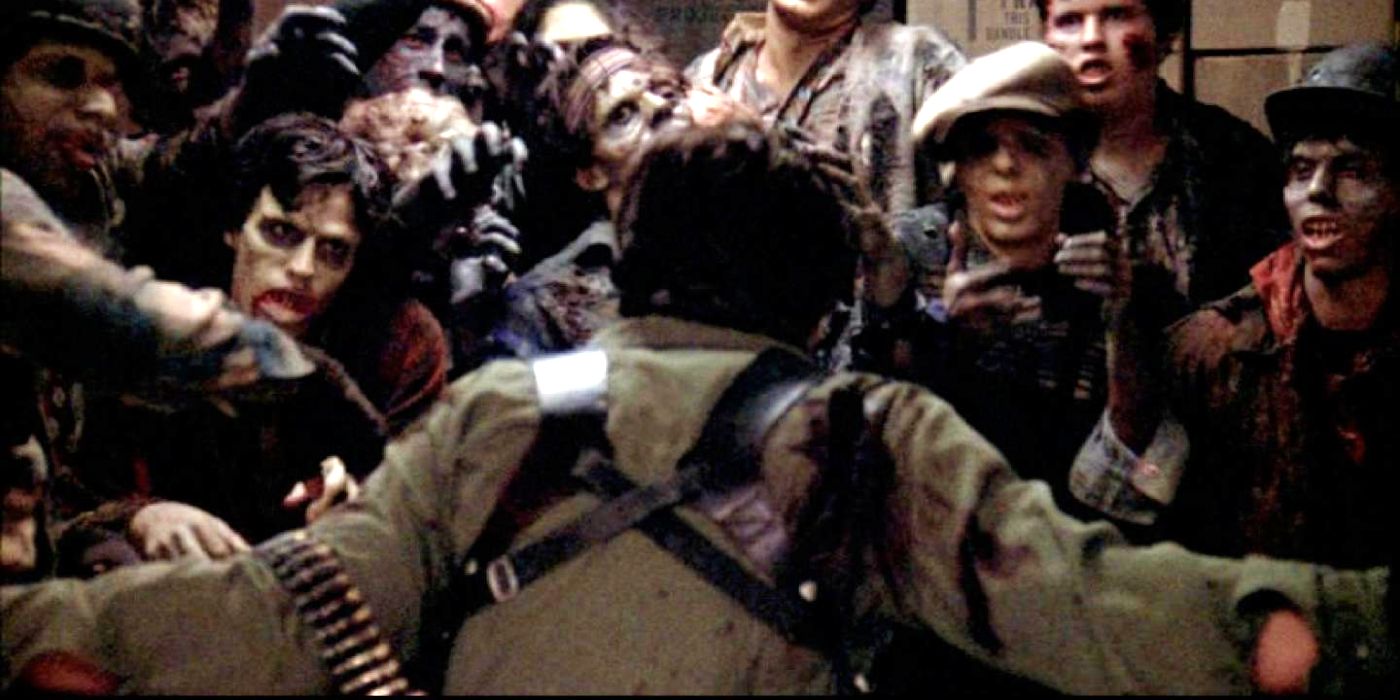The zombie universe of George Romero continues to be influential in the years since its creator’s passing. While many filmmakers have attempted to replicate Romero’s inventive gore, few have mastered his scathing commentary on societal dysfunction. Romero’s zombies are the product of a civilization that’s paved the way for its own apocalypse, masquerading as functional when it's really a walking corpse. Romero’s third zombie film Day of the Dead picks up after the events of Night of the Living Dead and Dawn of the Dead, where zombies vastly outnumber the few human survivors that hide within underground facilities. A group of scientists led by Dr. Sarah Bowman (Lori Cardille) have found few leads when investigating solutions to the zombie virus, with the only hope coming from early efforts by Dr. Matthew Logan (Richard Liberty) to communicate with the undead. The prospect of bridging an understanding with the zombies is all but depleted when a battalion of soldiers assigned to “protect” the researchers arrive.
All of Romero’s zombie films touch on how humans are often scarier than zombies themselves, but Day of the Dead’s bleak depiction of the denial of science hits especially hard in the COVID-19 era. At the center of this infuriating story is an unhinged performance by Joe Pilato as the militia captain Henry Rhodes, who embodies the belligerence of an army bro who refuses to follow solutions that don’t allow him to showcase his masculinity. The caricature of the Reagan era rings as a reality of the Trump generation, and Pilato’s incredible performance creates one of Romero’s best characters.
Nicknaming Dr. Logan as “Frankenstein,” Rhodes makes it clear he has little interest in understanding the undead, as he prefers to personally blast them away. He shows a fundamental lack of empathy, and seeing any touches of humanity within the zombies might complicate what he sees as a simple task. Zombies are “other,” and Rhodes refuses to acknowledge that they could be similar to him in any way. Pilato finds the sick pleasure in Rhodes’ insults; when Logan suggests that one of his undead patients was a former soldier, Rhodes responds with “You want me to salute that pile of walking pus? Salute my ass!” It’s clearly an underlying ethnic slur that Romero is hinting at, and Pilato’s casual delivery makes the implied bigotry more sickening.
Obviously Rhodes has no understanding of science, but he uses the pretense of having a plan of action to justify keeping the status quo. When taking over the research center from its former leader Major Cooper, Rhodes threatens Bowman and Logan that he’ll leave them unprotected if they disobey him, and that they have only a short window to prove him otherwise. Pilato’s utter contempt for those who present alternate solutions is a grim reminder of attitudes that were spotlighted throughout the pandemic: “You’ve given us a mouthful of Greek salad: formulas, equations, a lot of fancy terms that don’t mean a thing,” he jeers.
The irony of Rhodes’ proposed “solution” is that it isn't working; with zombie numbers growing rapidly and ammunition depleting at the same rate, Rhodes knows his forces can’t hold out for much longer. Pilato excellently shows Rhodes’s insecurity through his anger with increasingly creative put-downs and taunts reminiscent of a playground bully. Pilato’s performative hubris would be downright comical if he wasn’t in a position of authority, and it's clear that despite his eccentricities Rhodes’s threats don’t have a hint of irony.
Rhodes’s primal anger when he discovers Logan has fed the remains of his dead soldiers to his chief specimen Bub is absolutely terrifying. At the same time, Pilato also understands Romero’s sense of humor and maintains his flustered anger even when Rhodes becomes borderline caricature. The straight faced delivery of the line “I’m running this monkey farm now Frankenstein, and I want to know what the fuck you’re doing with my time!” is an Oscar-worthy clip right there.
Seeing the reprehensible man meet his grim fate is beyond satisfying. After lambasting Bub’s progress and killing his father figure Logan, it's rewarding to see Bub critically wound Rhodes with a gun. Bub not only bests his tormentor, but he proves his development of human traits, including the weaponry Rhodes so frequently twirls around. Seeing him leave Rhodes to be devoured, the same thing he’d threatened to do to Bowman and Logan early on, is just poetic.
Pilato gets the most out of his screen death, at first screeching like a scared child before Bub’s perfect shot leaves him gasping for air, ironically making sounds not dissimilar from the undead. Pilato is finally lost for words as his guts are pulled out, his eyes popping out in a face of shock. He’s blindsided not only by his own fate, but that Bub’s “mercy” in leaving him to be shredded is an act of cruelty that even he couldn’t have imagined.
The isolation of a zombie pandemic forces characters to reveal traits that make them closer to the undead. In Night of the Living Dead it's alienation and political disenfranchisement and in Dawn of the Dead it's consumerism, but Day of the Dead’s depiction of depleting civility through lack of communication came as a grim prophecy in 1985. Few things are more maddening than those with the ability to communicate that refuse to. Joe Pilato’s nuanced portrayal of a man without nuance is a monster that’s grimmer today than any of the undead.




